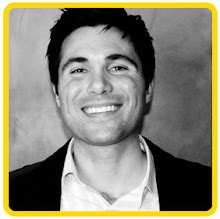Rocky Balboa is motivated by fear.
In the original Rocky movie, we see a big, strong, rough, tough scrapper constantly fighting his immeasurably small self-esteem. Rocky’s deepest fear was that people would think he was a bum—a nobody. Towards the end of the movie, right before his legendary fight with Apollo Creed, Rocky confesses to Adrian, “When that bell rings—and I’m still standing—then I’ll know that I’m not a bum.”
The very last movie in the Rocky saga, Rocky Balboa, captures the essence of the Rocky credo. In a scene where Rocky is visiting the grave site of his beloved Adrian, he confronts his son, now a grown man, about his own self-esteem issues:
“Let me tell you something you already know. The world ain't all sunshine and rainbows. It's a very mean and nasty place and I don't care how tough you are it will beat you to your knees and keep you there permanently if you let it. You, me, or nobody is gonna hit as hard as life. But it ain't about how hard ya hit. It's about how hard you can get it and keep moving forward. How much you can take and keep moving forward. That's how winning is done! Now if you know what you're worth then go out and get what you're worth. But ya gotta be willing to take the hits, and not pointing fingers saying you ain't where you wanna be because of him, or her, or anybody! Cowards do that and that ain't you!”
Fear is a very powerful motivator. In fact, there are cases where people in very frightful situations were able to accomplish amazing, even superhuman feats. But most of the time fear is a very self-centered motivator. In the case of Rocky, his fear of failure stemmed from his weak self esteem and placing all of his self-worth on how others viewed him. We watch the movie and are inspired by the amazing iron-clad will that got him to continually endure unbelievable punishment and continue to move forward, but ultimately, it was self-centered motives that drove Rocky. He wasn’t fighting for his country, his family, or even a belief he held—he was fighting for himself.
Contrast that with the story of William Wallace.
William Wallace was motivated by a belief.
The movie Braveheart depicts the story of William Wallace, a Scottish patriot that paved the way for Scotland’s independence. In the film, we see another remarkable story of inspiration. In the face of great adversity, outnumbered and outmatched, William Wallace led an army of peasant farmers against the legions of highly trained British troops in an effort to win Scotland’s freedom from tyrannical rule (sounds remarkably familiar, huh).
Here we see a leader that was motivated by what he believed. His belief was in a free and independent Scotland. This belief was something that transcended himself and spilled over into the hearts of the battered and oppressed Scottish peasant class. There is a scene very early in the movie after William Wallace’s father was killed by the English where William dreams that he sees his father and he gives him this very short, but unforgettable pep-talk, “William. Your heart is free. Have the courage to follow it.”
Follow it he did. And in the process he inspired men to do amazing things. In one famous battle scene, the Scottish militia has gone out to meet the English on the battlefield. Typically, Scotland’s nobles would negotiate a deal and then lead their army away. But it is at this moment that William Wallace delivers one of his most inspirational soliloquies:
“I am William Wallace! And I see a whole army of my countrymen, here in defiance of tyranny. You've come to fight as free men... and free men you are. What will you do with that freedom? Will you fight?”
“Aye, fight and you may die. Run, and you'll live... at least a while. And dying in your beds, many years from now, would you be willin' to trade ALL the days, from this day to that, for one chance, just one chance, to come back here and tell our enemies that they may take our lives, but they'll never take... OUR FREEDOM!”
Later in the movie, after his father betrays William Wallace, Robert the Bruce a leading contender for Scotland’s crown confronts the elder Bruce:
“Men fight for me because if they do not, I throw them off my land and I starve their wives and their children. Those men who bled the ground red at Falkirk, they fought for William Wallace, and he fights for something that I never had… I don't wanna lose heart. I wanna believe as he does.”
When it comes to our fundraising messages, we have a choice.
Fundraising is no different. We can either motivate our donors to give out of fear or out of a shared belief. The former usually leads to churning and attrition, while the latter leads to lasting relationships. So, how do you communicate with your donors? Are you inspiring them with a vision that is based in a shared belief, or do you tap into their deepest fears? Are you Rocky Balboa, or William Wallace?







0 comments:
Post a Comment